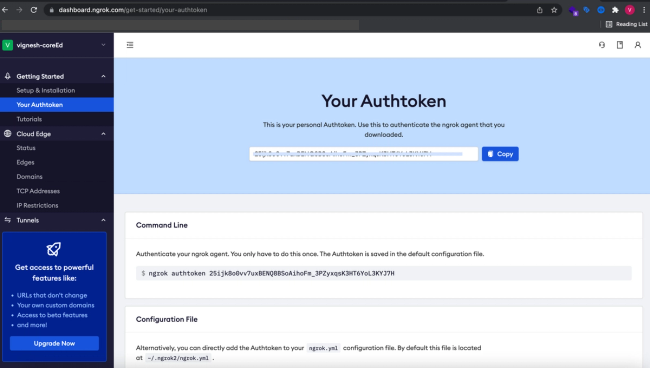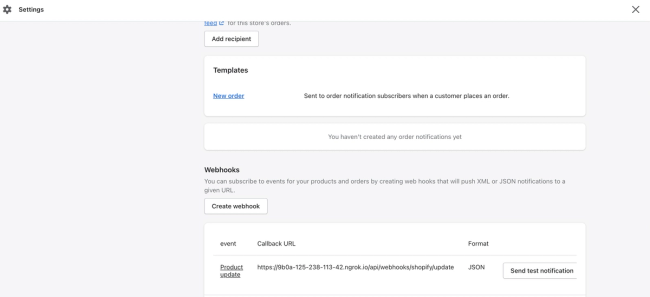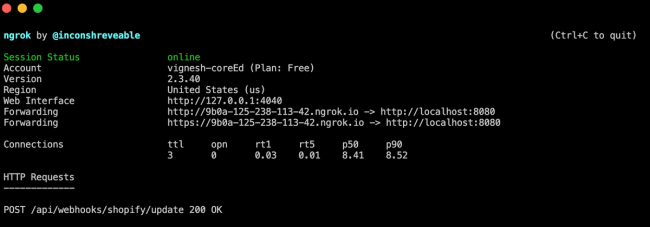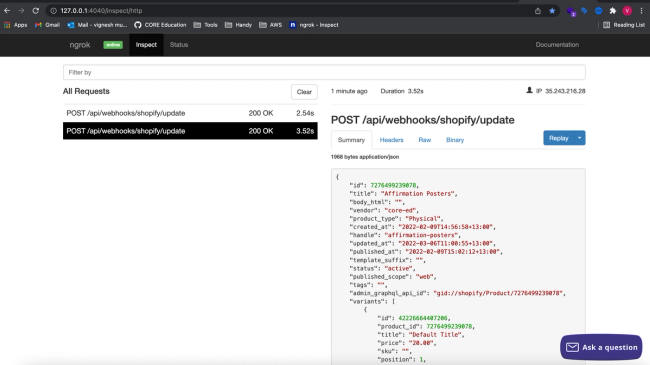Testing Webhooks Locally with Ngrok
12-Mar-2022 (updated: 19-Jul-2025 )
When developing applications that consume webhooks, one common challenge is testing the integration on your local machine. Webhooks require a publicly accessible, SSL-certified URL to receive data from external services like Shopify, Sanity.io, or Mailchimp. This is where Ngrok becomes an indispensable tool.
Ngrok creates a secure tunnel from the public internet directly to your localhost, allowing you to expose your local development server and test webhook payloads in real-time without deploying your application.
Step-by-Step Guide to Using Ngrok for Webhooks
1. Install Ngrok
First, install Ngrok on your machine. If you’re on a Mac, you can use Homebrew:
brew install ngrok/ngrok/ngrok
For other operating systems, please refer to the official Ngrok installation guide.
2. Authenticate Your Ngrok Account
While not strictly required for basic use, signing up for a free Ngrok account and adding your authtoken provides access to more features, such as longer tunnel durations and custom subdomains.
ngrok authtoken <YOUR_AUTH_TOKEN>

3. Start the Ngrok Tunnel
With your local server running, start an Ngrok tunnel and point it to the port your application is listening on. For example, if your server is on port 3000, run:
ngrok http 3000
Ngrok will generate a unique, public HTTPS URL that forwards all traffic to your local port 3000.
4. Configure Your Webhook Provider
Copy the secure forwarding URL from your terminal and paste it into the webhook configuration field of the service you’re testing (e.g., Shopify, Stripe, GitHub).

5. Trigger and Receive the Webhook
Once configured, trigger the event in the external service (e.g., update a product in Shopify). The service will send a webhook payload to your Ngrok URL, which will be securely tunneled to your local application.

6. Inspect the Payload
Ngrok provides a powerful web interface for inspecting all traffic. To see the details of incoming requests, including headers and the JSON payload, navigate to http://127.0.0.1:4040 in your browser.

Conclusion
With the webhook payload successfully received and inspected, you can now confidently develop and debug your application’s logic, mapping the incoming JSON data to your local database or other services. Ngrok simplifies the webhook development lifecycle, enabling rapid testing and iteration in your local environment.